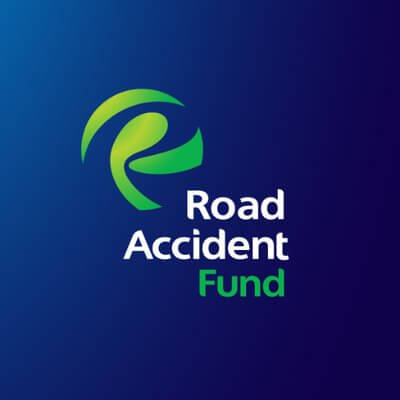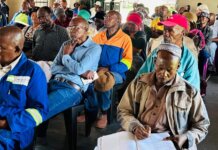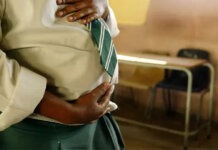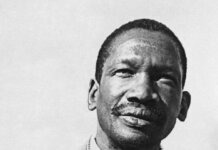The role of the Road Accident Fund (“RAF”) is to provide compensation to people within the borders of South Africa who sustain bodily injuries or death caused by a negligent driver in a road accident.
Claims must be lodged within 3 years, if the person who caused the accident is known, or 2 years in the case of a hit-and-run (a car hits you and the driver drives away without stopping).
- Claim Forms
- A claim must be lodged on the RAF 1 Claim Form.
- Claimants are only required to complete the required sections of the RAF 1 Claim Form, based on the type of claim, making the claim form easier to complete.
- The RAF 1 Claim Form lists all the supporting documents that are required to be submitted with the Claim Form for each RAF product claimed.
- The Claim Form guides the claimant on the completion of sections A and B, if the claimant intends to lodge a claim due to personal injury, and sections A and C if the claim results from the death of a person which will include funeral claim or loss of support claim.
- The information furnished in the Claim Form and the listed supporting documents that must accompany the Claim Form enable the RAF to administer the claim effectively and efficiently.
- The Claim Form must be completed by the claimant, or an attorney.
- Following receipt of a claim; the RAF pre-assesses all claims, only registers claims on the system which are compliant, and commences with its investigations. Claims with outstanding information are sent back to the claimant, are not registered on the system, and prescription continues to run on those claims as prescription will not be interrupted until a compliant claim is lodged. A prescription period is the time within which one is allowed to lodge a claim in terms of Section 23 of the Road Accident Fund Act 56 of 1996 as amended (“The RAF Act”).
- Upon receiving the lodged claims, the RAF investigates the claim to determine, amongst others, whether the claim documentation complies with legal provisions, whether the claim was submitted on time, whether the loss or damage was caused by or arose out of the driving of a motor vehicle (liability/merits assessment) and the respective degrees of fault, blame or negligence to be ascribed to the various drivers of the motor vehicles and the claimant. The loss or damage suffered by the claimant is also quantified.
- Additionally, the drivers and owners (if the owner is not the driver) of the motor vehicles involved in the collision must furnish details of the motor vehicle accident to the RAF on the RAF 3 Form.
- The Claim Forms are downloadable from the RAF’s website at: raf.co.za.
- Who is entitled to make a claim?
- An injured person
- A dependent of a person who died in an accident
- A close relative who paid for funeral expenses of a person who died in an accident
- A parent or legal guardian of a minor child
- A foster parent
- An executor of a deceased’s estate
- A curator/curatrix ad litem (appointed to act in a lawsuit on behalf of a child or other person not capable of representing themselves due to mental illness/unsound mind).
- Funeral Claims
Funeral claims are pre-assesed, registered, assessed, and then paid within the applicable legal guidelines. Payments are made directly to the family of the deceased who incurred the funeral cost. Funeral parlours are not allowed to lodge claims, even if mandated to do so by the family.
The RAF only pays necessary actual costs to cremate the deceased or to enter the body of the deceased in a grave, which includes:
- Transportation of the deceased’s body
- Provision of a coffin or burial shroud
- Preparation of the deceased’s body (including embalming)
- Storage of the deceased body
- Arranging for the issuing of a death certificate
- Burial or cremation of the deceased’s body
- Hiring of equipment to lower the coffin into grave, and
- Grave fees
The funeral expenses that are not covered include:
- Catering
- Flowers
- Tombstone
- Family transport, and
- Funeral programmes
- Circumstances which may result in unsuccessful claims against the RAF.
Examples of such instances include where:
- The injured person or deceased breadwinner was solely responsible (at fault) for causing the motor vehicle accident.
- The motor vehicle accident resulted in compensation being paid by the Compensation Fund (claimant injured whilst on duty) and such compensation exceeds the claimant’s entitlement from the RAF.
- Secondary emotional shock is suffered in circumstances where a person witnesses, or hears of a road cash, but is not physically involved in the motor vehicle accident.
- Only minor injuries were sustained (does not qualify for general damages – Whole Person Impairment below 30% and does not qualify under Narrative test), and no other loss or damage resulted from the injuries sustained.
- What can be claimed for?
- Medical expenses which include emergency and non-emergency medical treatment, only in cases where the expenses have not been paid by medical aid.
- Past and future loss of earnings or income
- Future medical expenses
- General damages for serious injuries
- Funeral expenses, and
- Past and future loss of support
- Additional RAF services provided to seriously injured claimants.
Apart from the compensation paid to the claimant, the RAF also assists claimants who require on-going medical treatment by offering a condition specific Undertaking Certificate in terms of Section 17 (a) to enable claimants to access such treatment and rehabilitative services.
An Undertaking Certificate is an agreement between the claimant and the RAF in terms of which the RAF provides for current and future medical needs that the claimant may have relating to the injuries sustained in the motor vehicle accident. This includes, amongst others, structural changes to homes or home modification where required (e.g. access ramps, bathroom modifications), payment in respect of caregivers, and providing access to assistive devices such as wheelchairs.
- Caregivers
The payment of expenses related to caregivers is one example of assistance provided to claimants by the RAF in terms of the Undertaking agreement. Caregivers care for claimants who are living with, for example, paraplegia, quadriplegia, and amputation, which result from injuries sustained in a motor vehicle accident. A caregiver may be a professional nurse or an informal caregiver, such as a family member, friend, neighbour or any other person who monitors the claimant and attends to his, or her, needs. The duties of a caregiver may include taking care of the physical well-being (such as hygiene and exercise) of the claimant, helping the claimant take their medication, looking after the claimant’s travelling needs, and performing light household duties in and outside the house that the claimant may no longer be able to do due to his or her functional impairment resulting from the injuries sustained in the motor vehicle accident. Claimants commonly choose a family member to act as a caregiver due to the intimate nature of the required care in many instances. The decision to appoint the specific caregiver/s is at all times the responsibility of the injured claimant or curator of the injured, as the case may be. The RAF will only facilitate the process to make an appointment but will not influence or partake in the decision to appoint any specific caregiver.
- RAF contact details
- Claimants can access the RAF’s services at any of its five (5) Regional Offices in Pretoria, Johannesburg, Durban, East London and Cape Town; or at six Customer Experience Centres in Durban, Bloemfontein, Mafikeng, Polokwane, Kimberley and Nelspruit.
- The RAF can be contacted through the Contact Centre on 087 820 1 111 (Mon-Fri: 07h45 to 16h00). Claimants will be assisted in any of the 11 official languages.
- A detailed list of all RAF offices is on the website: www.raf.co.za.
Follow the RAF on social media @RAF_SA or Facebook @Road Accident Fund














